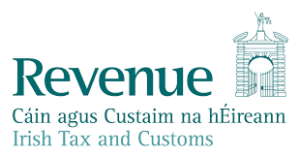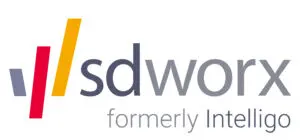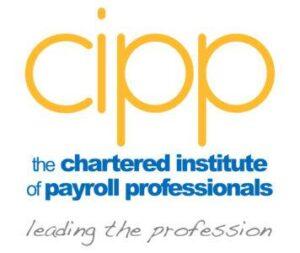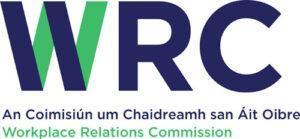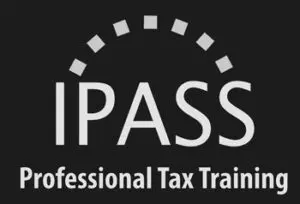Annual Payroll Conference & Exhibition
proudly sponsored by

The IPASS Annual Conference & Exhibition bringing Payroll Professionals together.
Croke Park, Friday 24th May 2024
SOLD OUT
Annual Payroll Conference & Exhibition 2024
Friday 24th May 2024
8.00 Registration / Tea & Coffee
9.00 Chairman’s Address
9.15 Main Sponsor Address: SD Worx
9.30 Revenue Commissioners & Department of Social Protection
Revenue speakers will provide you with an update on issues affecting both employers and employees. This presentation will include an update on Enhanced Reporting Requirements to include the introduction of a concessionary administrative practice in respect of advance travel and subsistence payments. This presentation will also include some other general Revenue updates.
Representatives from the PRSI Policy Section of the Department of Social Protection will provide a PRSI update to include the increase in the upper age limit for PRSI exemption in line with the flexibility introduced for claiming the State Pension (Contributory), future PRSI rate increases, and the interaction of Illness Benefit and sick leave.
These presentations will be followed by a joint Revenue and DSP panel for the Q & A session where delegates will have an opportunity to put their PAYE, USC and PRSI questions to the panel.
10.45 Break for Tea/Coffee
11.15 Code of Practice on the Right to Request Remote Working or Flexible Working Arrangements
Marian Jennings, Law Lecturer and Researcher TUD, Solicitor
Marian will provide you with an insight into the Code of Practice on the Right to Request Remote Working or Flexible Working Arrangements which came into effect on 6 March 2024 and related matters. The Code provides guidance on best practice for both employees and employers on the right to request flexible working arrangements for caring purposes for certain employees and the right to request remote working for all employees.
Break Out Session A
12.00 Gender Pay Gap Reporting
Sonya Boyce, HR & OD Consulting Director, Mazars
Gender pay gap reporting was introduced in Ireland in 2022 and initially applied to employers who employed 250 or more employees on their chosen snapshot date in June each year. For 2024, employers who employ 150 or more employees on their selected snapshot date will be obliged to prepare a Gender Pay Gap Report, with this threshold reducing to 50 employees or more in 2025. Sonya will provide you with an overview of an employer’s gender pay gap reporting obligations to include challenges encountered by employers to date and how payroll teams can support in the preparation of data.
OR
12.00 UK Payroll Update for 2024/2025 Tax Year
Fiona Smith, Training Manager, Chartered Institute of Payroll Professionals
Join Fiona Smith, Training Manager at the UK’s Chartered Institute of Payroll Professionals for an update on the biggest changes in this year’s budget. This is an unmissable session for those with payrolls in the UK and will ensure you are up to date with any legislative amendments for the 2024/25 tax year.
12.45 Break for Lunch
Break Out Session B
2.00 Auto-Enrolment
Department of Social Protection
With the introduction of Auto-Enrolment (AE) scheduled to commence in 2024, the Automatic Enrolment Programme Management Office in the Department of Social Protection will provide you with an AE overview and status update.
OR
2.00 Redundancy and Termination Payments
Ken Killoran, Tax Partner, Mazars
Ken will provide an overview of the rules relating to redundancy and termination payments. He will outline the rules for calculating the tax-free elements of a redundancy or severance payment and the treatment of any taxable elements, to include the impact of membership of an occupational pension scheme. This presentation will outline the employer reporting obligations and address areas where issues may arise such as the treatment of pay in lieu of notice, sham redundancies such as fire and rehire agreements.
Break Out Session C
2.45 Share Based Remuneration – Payroll and Reporting Obligations
Tara Murray, Employment Tax and Global Mobility Tax Director, Vialto Partners
Tara Murray will discuss the payroll tax and Revenue reporting obligations in respect of share-based remuneration. Tara will also provide an overview of the common types of share awards and the Irish tax treatment of same, including new rules relating to withholding tax on Stock Options; sell-to-cover arrangements; share awards where the employee spent time working outside Ireland during the lifetime of the award; the impact of an employee’s tax residency; and the Capital Gains Tax (CGT) implications for employees when the shares are sold.
OR
2.45 Review of recent Employment Law Cases
Paul D Maier, Barrister at Law
Breaches of employment law can result in significant penalties for employers. Paul will discuss some recent judgments from the WRC and the Courts to include the highest award to date for unfair dismissal, the commencement of cases under the Sick Leave Act 2022, and challenges to the mandatory retirement ages, to mention but a few!!
3.30 Domino Dancing: Determining Employment Status in Ireland
Prof. Michael Doherty, School of Law and Criminology, Maynooth University
It has taken a while, but what has been described as the first ‘gig economy’ case has been decided by the Irish Supreme Court. Although the case did not involve the use of a platform to organise work, it did require the Supreme Court to rule on the question of the employment status of pizza delivery drivers, all of whom were labelled as ‘independent contractors’ in the contracts between the company and the drivers. The case was taken by Revenue, which contended that the drivers, in fact, should have been classified as employees for tax purposes. The Supreme Court took the opportunity to present a long and detailed judgment on the correct approach to determining employment status. This presentation will analyse the decision, and discuss the approach to determining employment status laid down by the Supreme Court with a particular focus on three elements; the role of ‘mutuality of obligations’ in the context of ‘casual work’, the relative weight to be accorded to the express contractual terms set down by the parties, and the implications of a possible divergence in approaches to the meaning of ‘employee’ in tax, social security, and employment law.
4.15 Closing Remarks
4.30 Conference Ends

Revenue Update

Employment Law

Auto Enrolment

Gender Pay Gap


